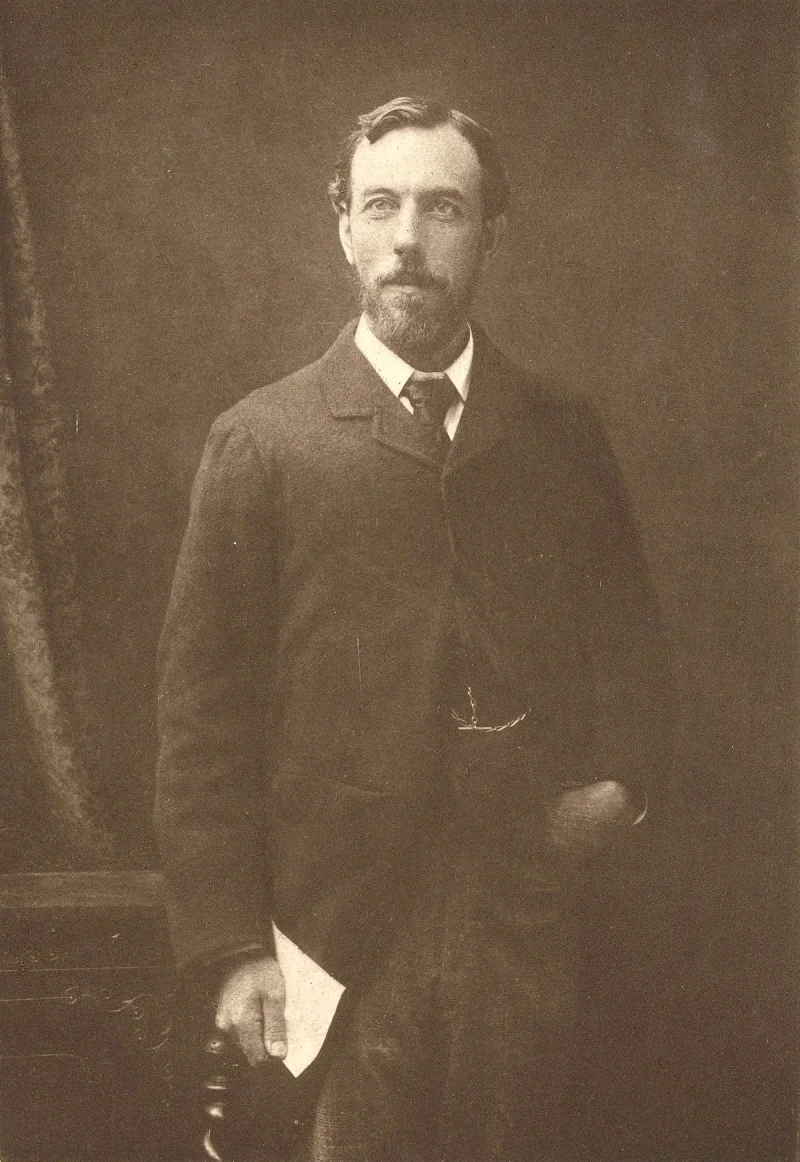Short Summary
William Ramsay was a renowned British chemist whose pioneering work led to the discovery of noble gases. He was awarded the Nobel Prize in Chemistry in 1904 for his significant contributions to the understanding of atmospheric elements. Ramsay's discoveries not only advanced the field of chemistry but also had a profound impact on scientific research and education.
Early Life & Education
William Ramsay was born on October 2, 1852, in Glasgow, Scotland, to a family with a strong academic background. His father was a civil engineer, and his mother came from a family of scholars. Ramsay attended the University of Glasgow, where he initially studied mathematics and physics. His interest in chemistry grew under the influence of Professor Alexander Crum Brown. He furthered his education at the University of Tübingen in Germany, where he earned his Ph.D. in organic chemistry under the mentorship of Wilhelm Rudolph Fittig. These formative years laid the groundwork for Ramsay's illustrious career in chemistry.
Career Highlights
Ramsay began his professional career as a chemistry lecturer at the University of Bristol. In 1887, he was appointed the Chair of Chemistry at University College London, a position he held for many years. His most notable work took place in the late 19th and early 20th centuries when he discovered several noble gases, including argon, neon, krypton, and xenon, in collaboration with Lord Rayleigh and Morris Travers. His research significantly expanded the periodic table and provided deeper insights into the properties of gases. Ramsay's work earned him numerous accolades and solidified his reputation as a leading figure in the field of chemistry.
Major Achievements
- Discovery of Noble Gases: Identified and isolated argon, neon, krypton, and xenon, expanding the periodic table.
- Nobel Prize in Chemistry 1904: Awarded for his groundbreaking work on atmospheric elements.
- Development of Methods for Gas Isolation: Innovated techniques for isolating and analyzing gases.
- Collaborative Research with Lord Rayleigh: Jointly discovered argon, leading to further noble gas discoveries.
Famous Quotes
- "Progress is made by trial and failure; the failures are generally a hundred times more numerous than the successes; yet they are usually left unchronicled."
- "Chemistry ought to be not for chemists alone."
Interesting Facts
- Ramsay's work led to the addition of an entirely new group to the periodic table.
- He was knighted in 1902 for his contributions to science.
- Ramsay was a strong advocate for the practical applications of scientific research.
Legacy / Influence
William Ramsay's discovery of the noble gases revolutionized the field of chemistry and had a lasting impact on scientific research. His work laid the foundation for future studies in chemical reactions and properties of gases. Ramsay's innovative methods and discoveries continue to influence modern chemistry, making him a pivotal figure in the history of science.
FAQ
Q: Why is William Ramsay famous?
A: He is famous for discovering noble gases and expanding the periodic table.
Q: What award did William Ramsay receive for his work?
A: He received the Nobel Prize in Chemistry in 1904.
Q: What was Ramsay's educational background?
A: He studied at the University of Glasgow and earned a Ph.D. from the University of Tübingen.












